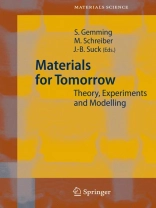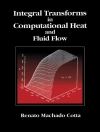Materials science has assumed a key position for new technological dev- opments, and is therefore strongly supported by industry and governments. Nowadays it occupies a bridging position between physics, chemistry and – gineering and extends from basic science in physics and chemistry on the atomic scale to large-scale applications in industry. The increasing number of materials science study courses at universities underlines the present and future importance of understanding and developing materials for the future. The contributions to this book evolved from the lectures of such a course, namely the Heraeus summer school on “New Materials for Today, Tomorrow and Beyond”, held at Chemnitz University of Technology in October 2004. Looking at the rapidly developing communications industry, it is obvious that a large part of current research for future materials is devoted to the understanding of materials to be used in nanometer (nm) scale devices. It is therefore not surprising that ?ve of the six lectures collected in this volume aredevotedmoreor less directly to the nm scale, while the ?rstonetreats one ofthecentralunsolvedproblemsofcondensedmatterphysicsand–becauseof thewidespreadindustrialapplicationofglassesineverydaylife–touchingalso materialsscience.Someofthematerialsdiscussedherearealreadyusedtoday, for others the development has proceeded far enough that their application can be expected in the near future. Yet others, however, we will not be ready to use until some years from now, assuming that the di?culties connected with their application are solved in the near future.
Зміст
Computer Simulations of Undercooled Fluids and Glasses.- Simulation of Inorganic Nanotubes.- Spintronics: Transport Phenomena in Magnetic Nanostructures.- Theoretical Investigation of Interfaces.- Electronic Structure and Transport for Nanoscale Device Simulation.- Metallic Nanocrystals and Their Dynamical Properties.
Про автора
Sibylle Gemming is senior scientist at the Institute of Ion-Beam Physics and Materials Research, Forschungszentrum Rossendorf, Dresden, Germany
Michael Schreiber holds the chair of Theory of Disordered Systems at Chemnitz University of Technology
Jens-Boie Suck held a chair of Material Science and Liquids at Chemnitz University of Technology, Germany. Now em.Prof. of the same University, Extraordinarius at the University of Bale, Switzerland












